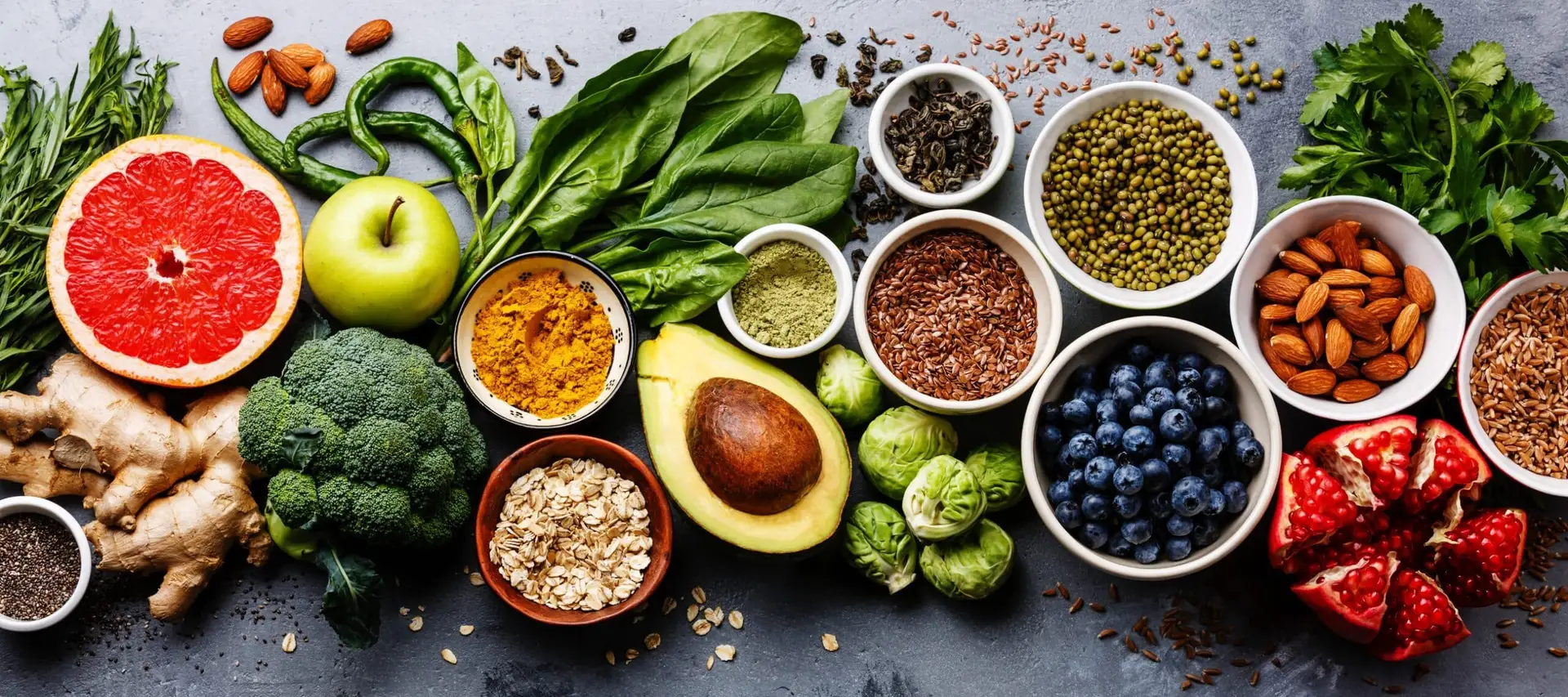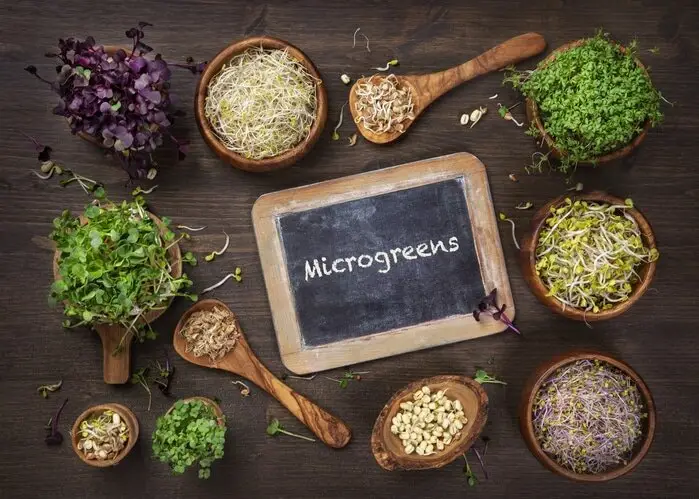The Top 10 Nutrient-Rich Foods You Should Be Eating

Introduction
Eating a balanced diet rich in nutrient-dense foods is essential for maintaining optimal health and well-being. These foods, often referred to as “superfoods,” are packed with vitamins, minerals, antioxidants, and other vital nutrients that can help reduce the risk of chronic diseases, improve overall health, and support physical and mental performance. In this article, we will explore the top 10 nutrient-rich foods you should be incorporating into your diet to reap the benefits of their exceptional nutritional profiles.
Leafy Greens
Leafy green vegetables, such as spinach, kale, and Swiss chard, are among the most nutrient-dense foods available. They are rich in vitamins A, C, and K, as well as minerals like calcium, iron, and magnesium. Leafy greens also contain high levels of antioxidants, which can help protect your cells from damage and reduce inflammation. Some ways to incorporate leafy greens into your diet include adding them to salads, smoothies, soups, or stir-fries, or simply enjoying them as a side dish.
Berries
Berries, including blueberries, strawberries, raspberries, and blackberries, are packed with vitamins, minerals, and antioxidants, particularly anthocyanins, which give them their vibrant colours. These powerful antioxidants have been linked to reduced inflammation, improved heart health, and protection against certain types of cancer. Berries are also an excellent source of fibre, which can promote digestive health and help regulate blood sugar levels. Enjoy berries as a snack, add them to your breakfast cereal or yogurt, or blend them into a smoothie for a nutrient-packed beverage.
Nuts and Seeds
Nuts and seeds, such as almonds, walnuts, chia seeds, and flaxseeds, are nutritional powerhouses, providing healthy fats, protein, fibre, vitamins, and minerals. They are particularly high in heart-healthy monounsaturated and polyunsaturated fats, which can help lower LDL (“bad”) cholesterol and reduce the risk of heart disease. Nuts and seeds are also excellent sources of essential nutrients, such as magnesium, potassium, and vitamin E. Incorporate nuts and seeds into your diet by adding them to oatmeal, yogurt, or salads, or simply enjoy them as a satisfying, nutrient-dense snack.
Fatty Fish
Fatty fish, such as salmon, mackerel, sardines, and trout, are rich in omega-3 fatty acids, which have been linked to numerous health benefits, including reduced inflammation, improved brain function, and a lower risk of heart disease. These fish are also an excellent source of high-quality protein and essential vitamins and minerals, such as vitamin D and selenium. Aim to consume at least two servings of fatty fish per week, either grilled, baked, or broiled, to maximize their nutritional benefits.
Legumes
Legumes, including beans, lentils, and chickpeas, are a low-fat, high-fibre source of plant-based protein, vitamins, and minerals. They are particularly rich in B vitamins, iron, magnesium, and potassium, and have been associated with a reduced risk of heart disease, type 2 diabetes, and certain types of cancer. Incorporate legumes into your diet by adding them to soups, stews, salads, or grain bowls, or enjoy them as a protein-packed alternative to meat in dishes like tacos or pasta.
Avocados
Avocados are a unique fruit, as they are high in heart-healthy monounsaturated fats rather than carbohydrates. They are also an excellent source of fibre, potassium, and vitamins C, E, and K. The healthy fats in avocados can help absorb fat-soluble vitamins like A, D, E, and K, making them a valuable addition to a balanced diet. Enjoy avocados as a spread on toast, add them to salads or sandwiches, or blend them into smoothies for a creamy, nutrient-dense treat.
Sweet Potatoes
Sweet potatoes are a versatile and delicious source of essential vitamins and minerals, particularly vitamin A in the form of beta-carotene, which is crucial for maintaining healthy skin, vision, and immune function. They are also high in fibre, vitamin C, and potassium. Sweet potatoes can be baked, boiled, or roasted, and their natural sweetness makes them a popular ingredient in both savoury and sweet dishes. Try swapping out regular potatoes for sweet potatoes in recipes like mashed potatoes, fries, or casseroles to boost their nutritional value.
Whole Grains
Whole grains, such as brown rice, quinoa, barley, and whole wheat, are nutrient-dense foods that provide an excellent source of fibre, B vitamins, and minerals like iron, magnesium, and selenium. Studies have shown that consuming whole grains can help lower the risk of heart disease, type 2 diabetes, and certain types of cancer. Incorporate whole grains into your diet by replacing refined grains like white rice or pasta with healthier whole-grain alternatives, or experiment with different grains in dishes like salads, soups, or grain bowls.
Greek Yogurt
Greek yogurt is a nutrient-rich dairy product that is high in protein, calcium, and probiotics, which can promote a healthy gut microbiome. The straining process used to make Greek yogurt removes excess liquid and lactose, resulting in a thicker, creamier texture and a higher protein content compared to regular yogurt. Enjoy Greek yogurt as a snack with fruit, nuts, or granola, or use it as a base for smoothies, salad dressings, or dips.
Dark Chocolate
Dark chocolate, particularly varieties with a high cocoa content (70% or higher), is a delicious and indulgent source of antioxidants, including flavonoids, which have been linked to reduced inflammation, improved heart health, and lower blood pressure. Dark chocolate is also a good source of minerals like iron, magnesium, and zinc. Enjoy dark chocolate in moderation, as a small treat or as an ingredient in healthier dessert recipes, to reap its nutritional benefits without consuming excessive amounts of added sugar or fat.
Conclusion
Incorporating nutrient-rich foods into your diet can provide numerous health benefits and contribute to a balanced, nourishing lifestyle. By including a variety of these top 10 nutrient-dense foods in your meals, you can ensure you are consuming a wide range of essential vitamins, minerals, and other nutrients that support optimal health and well-being. Remember, a diverse and balanced diet is key to maintaining good health, so be adventurous and try new nutrient-packed foods to keep your meals interesting and satisfying.
Disclaimer
The information provided in this article is for educational and informational purposes only and is not intended as medical advice. It is not a substitute for professional medical advice, diagnosis, or treatment. Always seek the advice of a qualified healthcare provider with any questions you may have regarding a medical condition. The author and publisher of this article are not responsible for any adverse effects or consequences resulting from the use of any suggestions, preparations, or procedures described in this article.



